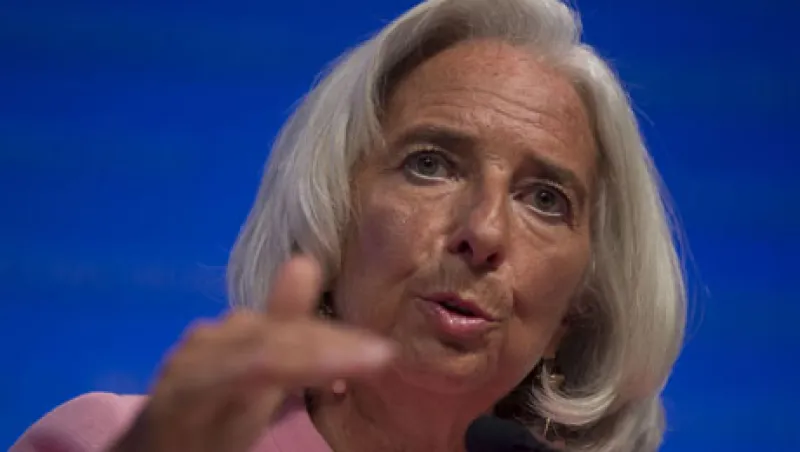
Christine Lagarde, managing director of International Monetary Fund (IMF), speaks at a news conference during the International Monetary Fund (IMF) and World Bank Group Annual Meetings in Washington, D.C., U.S., on Thursday, Oct. 10, 2013. Politicians in Washington need to show leadership in resolving a political deadlock on the budget that risks damaging the country's economy and the rest of the world, Lagarde said. Photographer: Andrew Harrer/Bloomberg *** Local Caption *** Christine Lagarde
Andrew Harrer/Bloomberg

